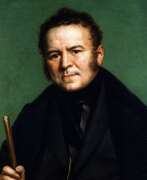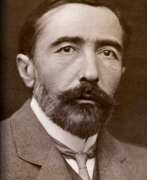Novelist
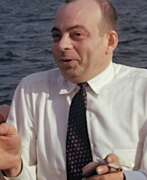

Antoine Marie Jean-Baptiste Roger, Comte de Saint-Exupéry, known as Antoine de Saint-Exupéry, is a French national treasure who seamlessly combined his profession as an aviator with his literary genius. Known for "The Little Prince," he masterfully blended philosophy and poetic discourse into narrative forms. This author, journalist, and pioneering pilot left an indelible mark through his literary works and contributions to aviation.
Saint-Exupéry's merits transcend his inventive storytelling; his narratives often reflect his aviation experiences, offering unique insights into humanity and technology's intersection. His works, though not housed as traditional art in museums, reside in the Louvre of public imagination and literary canon.
For enthusiasts and experts, Saint-Exupéry's legacy is a testament to the enduring power of human spirit and curiosity. His narrative sculptures crafted from words, deeply philosophical and yet whimsically accessible, continue to inspire and resonate. Dive into the world of this exceptional storyteller and aviator to explore the skies of human experience.
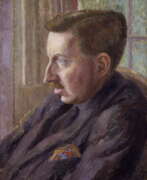

Edward Morgan Forster, English novelist, essayist, and critic, was a prominent literary figure of the early twentieth century. Born on 1 January 1879 in London and died on 7 June 1970 in Coventry, Forster's work was celebrated for its profound critique of social conventions, class distinctions and hypocrisy in British society. A member of the influential Bloomsbury group, Forster did not confine himself to novels, but also wrote essays, gave speeches and hosted programmes.
E. M. Forster was characterised by wit and a fine sense of irony. His novels, particularly A Room with a View, Howards End and A Passage to India, were recognised for their well-crafted plots and insightful social commentary. Not only have these works earned them a place in literature, but they have also been nominated for the Nobel Prize for Literature. The films A Room with a View and Howards End won Academy Awards and have been recognised and celebrated in film archives and retrospectives by film institutions.
Edward Morgan Forster's novels serve as critical social commentary of their time and remain relevant to this day. Those interested in the intersection of literary art and its influence on film can look to first editions of his works or objects associated with acclaimed film adaptations to add to their collections.
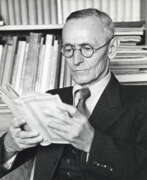

Hermann Karl Hesse was a German-Swiss poet, novelist, and painter, known for delving into themes of authenticity, self-knowledge, and spirituality. Born in Calw, Germany, Hesse's exploration of the individual's quest for truth won him the Nobel Prize for Literature in 1946. His storytelling weaves a rich tapestry of philosophical thought, evident in masterpieces like "Steppenwolf" and "Siddhartha," which resonate deeply with the human experience.
Renowned for his lyrical prose and profound insights into the human spirit, Hesse's works are a cornerstone of 20th-century literature. They challenge readers to seek beyond the confines of society and find a deeper sense of self. His narrative style combines simplicity with a deep philosophical undercurrent, inviting reflection and introspection.
Collectors and connoisseurs of literature hold Hesse's works in high esteem, not just for their literary merit but also for their cultural significance. For those interested in the evolution of literary thought and the pivotal role of introspective narratives, Hesse’s works are invaluable. Delve into his writings to discover the essence of early 20th-century philosophical literature and consider adding them to your collection for both their historic and artistic value.


Henry James was an American-British author celebrated for his role as a key transitional figure between literary realism and modernism. Born on April 15, 1843, in New York City, James was known for his nuanced approach to the novel as a literary form. His works, including the famous "The Portrait of a Lady" and "The Turn of the Screw," delve into themes of consciousness and perception, and are revered for their insightful exploration of character and society.
James's mastery in prose is evident in his voluminous output of 22 novels, over a hundred short stories, and numerous volumes of non-fiction, including biographies, travel writing, and literary criticism. His storytelling, characterized by a subtle analysis of personal relationships, has earned him recognition as one of the great prose writers in American literature. This recognition has only grown since his lifetime, with his audience expanding significantly posthumously.
For collectors and experts in literature, James’s works are not just books but artifacts that capture the transformative period of early modernist writing. While physical exhibitions of his manuscripts and early editions are rare, they are highly sought after by collectors and museums. To stay informed about such rare opportunities and updates on Henry James, signing up for specialized updates is invaluable. Don’t miss the chance to explore and perhaps own a piece of literary history.
